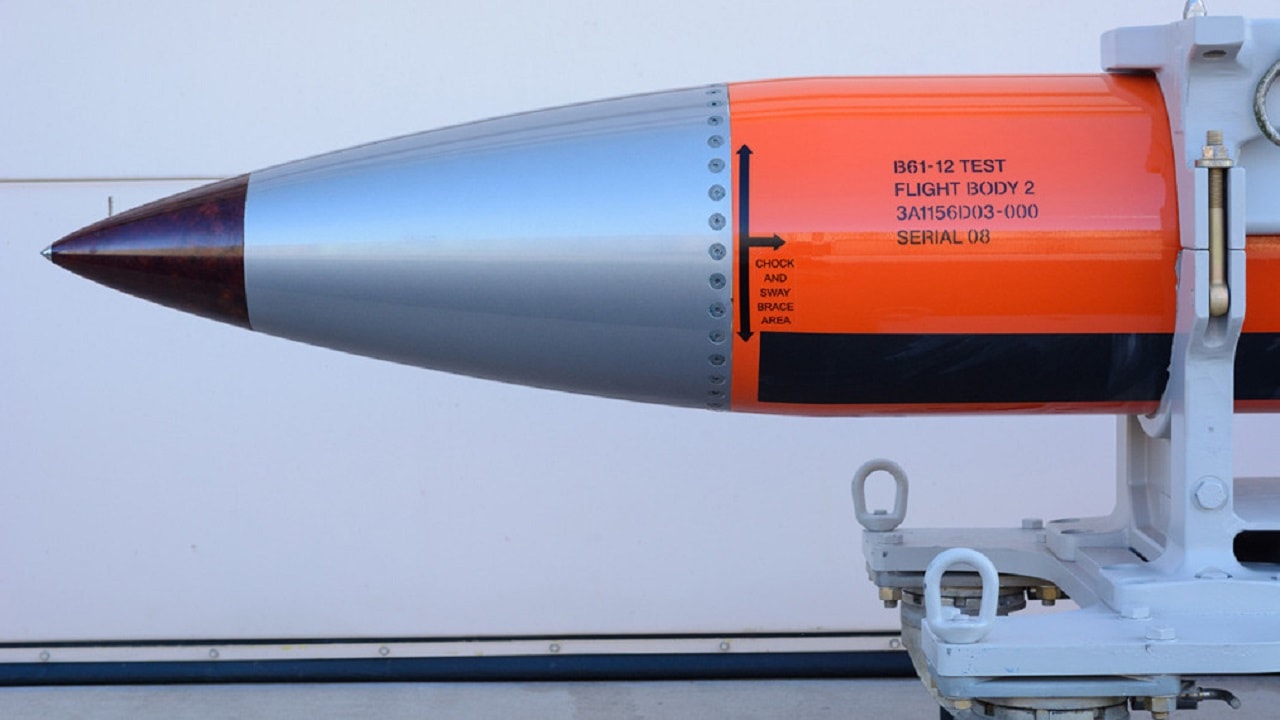The invasion of Ukraine is going so poorly for Russian President Vladimir Putin and the Russian military that the Kremlin has repeatedly threatened a nuclear strike.
Nuclear Threats over Ukraine
When last week Putin made his televised address announcing the partial mobilization of the Russian reserves and calling 300,000 reserves to show up for duty, he intentionally presented the nuclear scenario to the Russian people in order to gain some legitimacy for his decisions.
“Even nuclear blackmail has come into play. We are talking not only about the shelling of the Zaporizhzhia nuclear plant encouraged by the West. . .but also about statements by some high-ranking representatives of leading NATO countries on the possibility and admissibility of using weapons of mass destruction against Russia—nuclear weapons,” Putin had said.
“I want to remind those who allow themselves such statements that our country also has a variety of weapons of mass destruction and in some areas even more modern than those in NATO countries. And if the territorial integrity of our country is threatened, we will without any question use all the means at our disposal to protect Russia and our people. This is not a bluff,” Putin had added.
In response to Putin’s threats, U.S. national security adviser Jake Sullivan said that the U.S. is taking the Russian threats seriously, highlighting that this isn’t the first time Putin has made the nuclear threat since the war started.
“And we have communicated, directly, privately, to the Russians at very high levels, that there will be catastrophic consequences for Russia if they use nuclear weapons in Ukraine,” Sullivan stated.
Tactical Nuclear Strike Threats
Putin’s threats most certainly concern a tactical nuclear strike as opposed to a strategic one. The difference between the two has to do with scope. In a tactical nuclear strike scenario, the military in question is using the munition to gain operational advantage over its adversary.
For example, a military could deploy a tactical nuke to destroy a large concentration of enemy troops that are gearing up for an attack and then take advantage of the losses and confusion to launch its own offensive. Another example would be to deploy a tactical nuclear weapon to stop the offensive of an opponent who is threatening your forces with encirclement or destruction. Tactical nuclear strikes are intended to give a military advantage on the battlefield.
Conversely, strategic nuclear strikes seek to take out key socioeconomic and political hubs and bend the will of a population to continue fighting.
The atomic bombs in Hiroshima and Nagasaki in 1945 are the only examples of strategic nuclear strikes. The United States had asked for the unconditional surrender of Japan, and when President Harry Truman didn’t get an answer, he greenlighted the two strikes in an attempt to apply maximum pressure on the Japanese to surrender. In the end, his gamble (the U.S. didn’t have any more atomic bombs, and it would take months before another one was ready) paid off, and the Japanese surrendered shortly thereafter.
Largest Nuclear Arsenal
Russia has the largest nuclear arsenal in the world, with approximately 6,400 nuclear warheads divided into its nuclear triad (missiles that could be launched from the air, ground, and sea).
In comparison, the U.S. military can field about 5,800 nuclear warheads.
Expert Biography: A 19FortyFive Defense and National Security Columnist, Stavros Atlamazoglou is a seasoned defense journalist specializing in special operations, a Hellenic Army veteran (national service with the 575th Marine Battalion and Army HQ), and a Johns Hopkins University graduate. His work has been featured in Business Insider, Sandboxx, and SOFREP.

